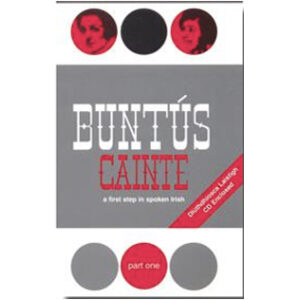by Liam MacGiodaire | Mar 15, 2021 | Past Tense |
Affirmative Statements
In making the past tense, all changes are made at the beginning of the verb. Start with the basic verb and:
1. Séimhiú (add an “h” after) an initial consonant if it is a [B, C, D, F*, G, M, P] or [T]. Please refer to the samplaí (examples) in the chart below. (In other words, all consonants except L, N, R and sometimes S.) Séimhiú (add an “h” after) an initial [S] only if the following letter is a vowel or an [L, N or R]. Please refer to the samplaí (examples) in the chart below. Otherwise, leave an initial S unchanged. An initial L, N or R remains unchanged. Add [D’] before an initial vowel or an initial [F*]. Please refer to the samplaí (examples) in the chart below.
Negative Statements and Questions
Negative statements and questions in the past tense are made by adding the appropriate “verbal particle” before the basic verb, as follows:
Ar: Direct Questions
Níor: Negative Statements
Nár: Negative Questions
Once the verbal particle has been added before the verb, the basic verb will change (if at all) exactly as in the affirmative statement form, with one exception. Once the verbal particle has been added, “D” is no longer needed before verbs starting with a vowel or an initial F.
* Note: When F takes a séimhiú it becomes silent so that the first sound heard in the verb is the following vowel. Because of this, “D'” is added before “fh” as though the verb started with a vowel.
Please refer to the samplaí (examples) in the chart below.
by Liam MacGiodaire | Mar 15, 2021 | Examples |
Aimsir Chaite – Briathra Rialta
Past Tense – Regular Verbs
|
Réimniú
Conjugation |
Samplaí
Examples |
| A |
2 |
D‘athraigh Uaitéar a phlean. Uaitéar changed his plan.
| Ar athraigh…? |
Níor athraigh… |
Nár athraigh…? |
|
| B |
1 |
Bhuail Beatha an madra dána. Beatha struck the bad dog.
| Ar bhuail…? |
Níor bhuail… |
Nár bhuail…? |
|
| C |
2 |
Chodail Greag i gcró na gcearc. Greag slept in the henhouse.
| Ar chodail…? |
Níor chodail… |
Nár chodail…? |
|
| D |
2 |
Dhúisigh Treasa go moch ar maidin. Treasa awoke early in the morning.
| Ar dhúisigh…? |
Níor dhúisigh… |
Nár dhúisigh…? |
|
| E |
2 |
D’éirigh Caoimhín leis an ngrian, mar is gnách. Caoimhín arose at sunrise, as usual.
| Ar éirigh…?… |
Níor éirigh… |
Nár éirigh…? |
|
| F |
1 |
D’fhág Crios an naíonán sa siopa. Crios left the infant in the shop.
| Ar fhág…? |
Níor fhág… |
Nár fhág…? |
|
| G |
1 |
Ghlan Máirín a coinsias. Máirín cleared (cleaned) her conscience.
| Ar ghlan…?. |
Níor ghlan… |
Nár ghlan…? |
|
| I |
2 |
D’inis Liam bréaga dúinn. Liam told us lies.
| Ar inis…?… |
Níor inis…..? |
Nár inis…? |
|
| L |
2 |
Labhair Muiris leis an bhfear marbh. Muiris spoke to the dead man.
| Ar labhair…? |
Níor labhair… |
Nár labhair…? |
|
| M |
2 |
Mharaigh Ethel í fhéin leis an ól. Ethel killed (destroyed) herself with drink.
| Ar mharaigh …? |
Níor mharaigh … |
Nár mharaigh …? |
|
| N |
1 |
Nigh Seosamh a choróin ríoga. Seosamh washed his royal crown.
| Ar nigh …? |
Níor nigh … |
Nár nigh …? |
|
| O |
1 |
D’ól Éamonn a phionta go sciobtha. Éamonn drank his pint quickly.
| Ar ól …? |
Níor ól … |
Nár ól …? |
|
| P |
1 |
Phós Bairbe go hóg. Bairbe married young.
| Ar phós…? |
Níor phós… |
Nár phós…? |
|
| R |
1 |
Rith Sóisear ar nós na gaoithe. Sóisear ran like the wind.
| Ar rith …? |
Níor rith … |
Nár rith …? |
|
| S1 |
1 |
Sheas an ghruaig ar cheann Thomáis. Thomas’ hair stood on end.
| Ar sheas…? |
Níor sheas … |
Nár sheas …? |
|
| S2 |
1 |
Shroich Mollaí aois áirithe. Mollaí reached a certain age.
| Ar shroich …? |
Níor shroich … |
Nár shroich …? |
|
| S3 |
2 |
Smaoinigh Pádraig tamaillín faoi. Pádraig thought about it for a while.
| Ar smaoinigh…? |
Níor smaoinigh… |
Nár smaoinigh …? |
|
| T |
1 |
Thaispeáin an buachaill a ghliomach d’Eibhlín. The boy showed his lobster to Eibhlín.
| Ar thaispeáin …? |
Níor thaispeáin … |
Nár thaispeáin …? |
|
| U |
2 |
D’Ullmhaigh Pádraigín deoch nimhiúl. Pádraigín prepared a poisonous drink.
| Ar ullmhaigh …? |
Níor ullmhaigh … |
Nár ullmhaigh …? |
|
